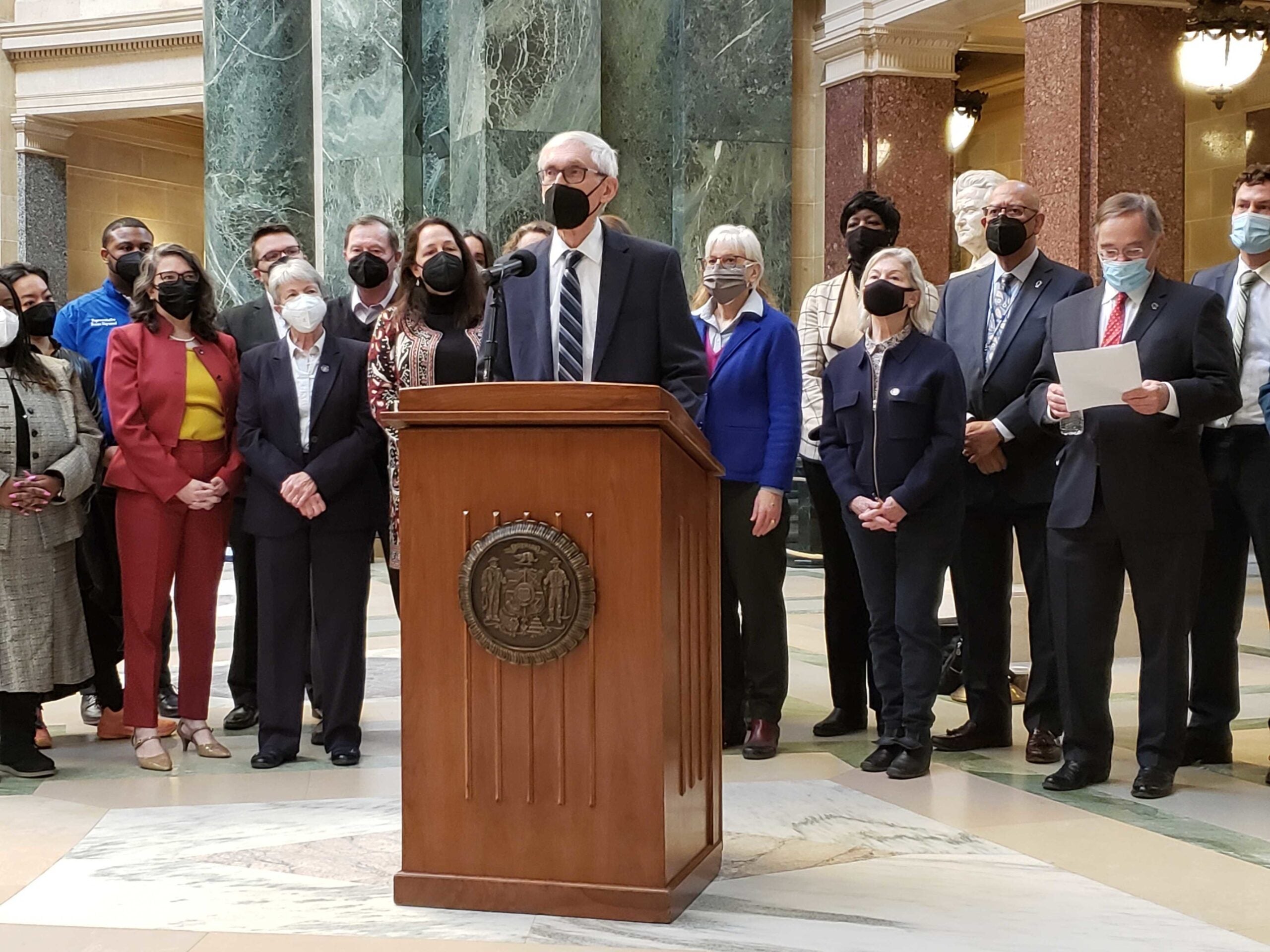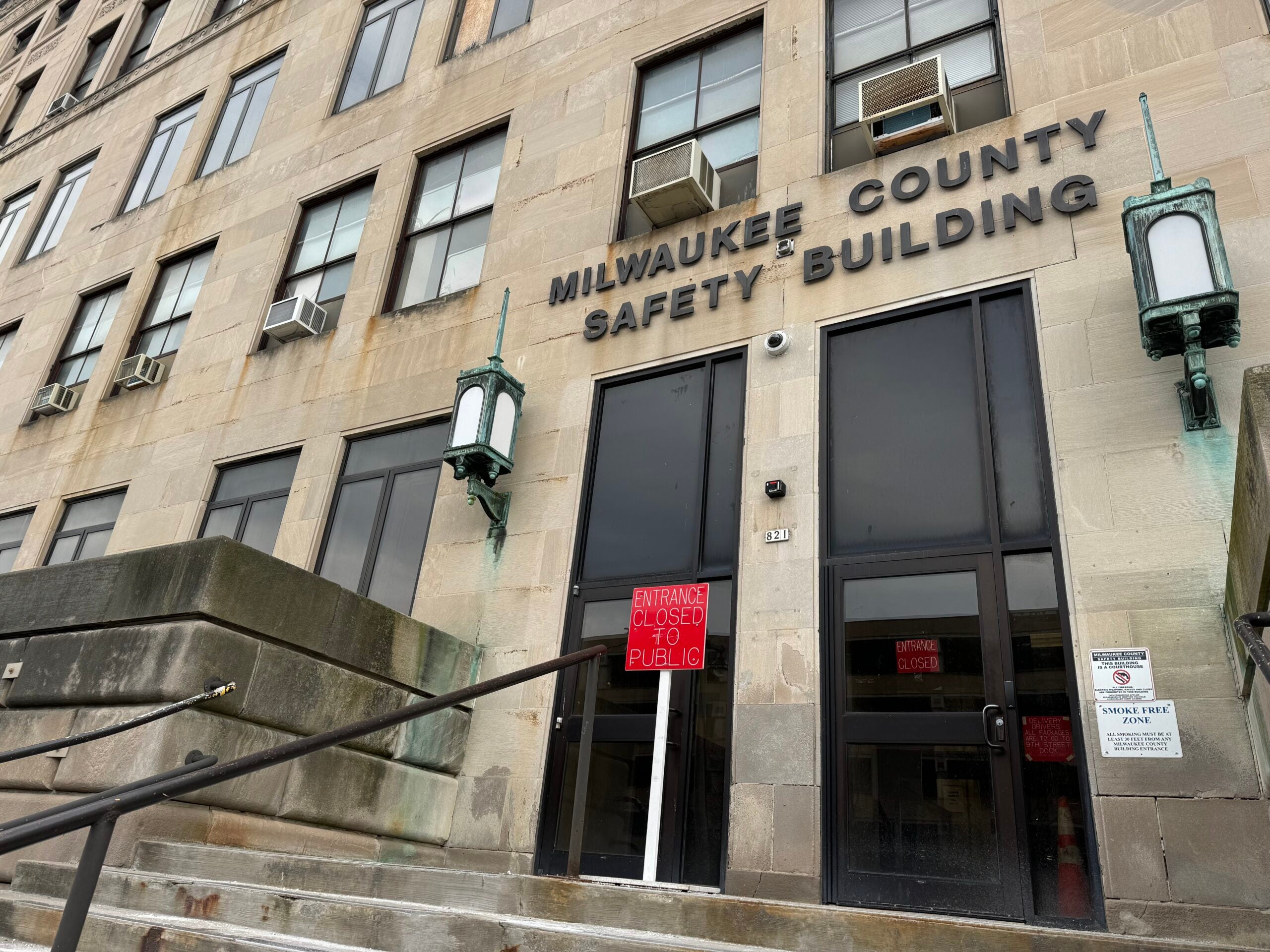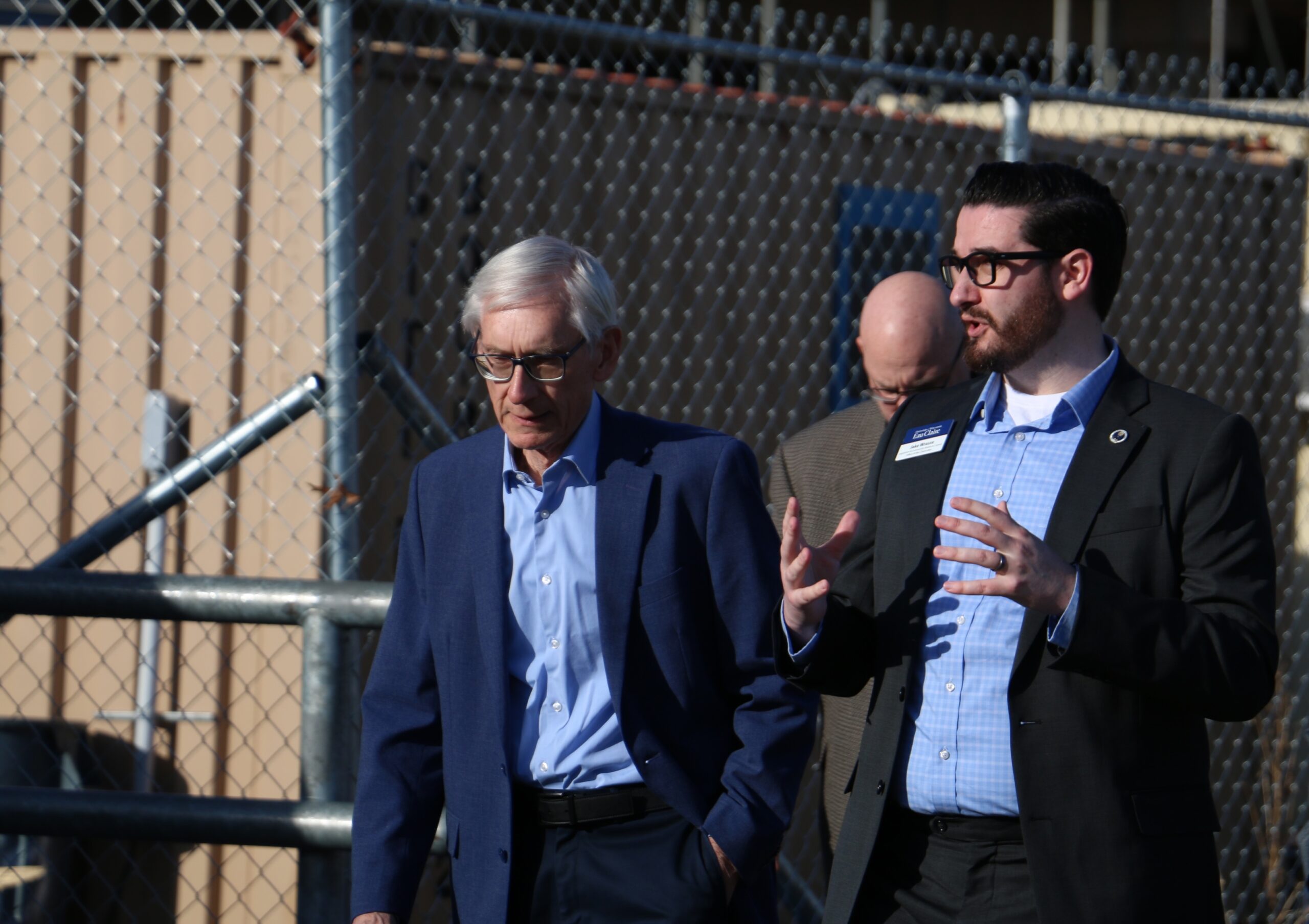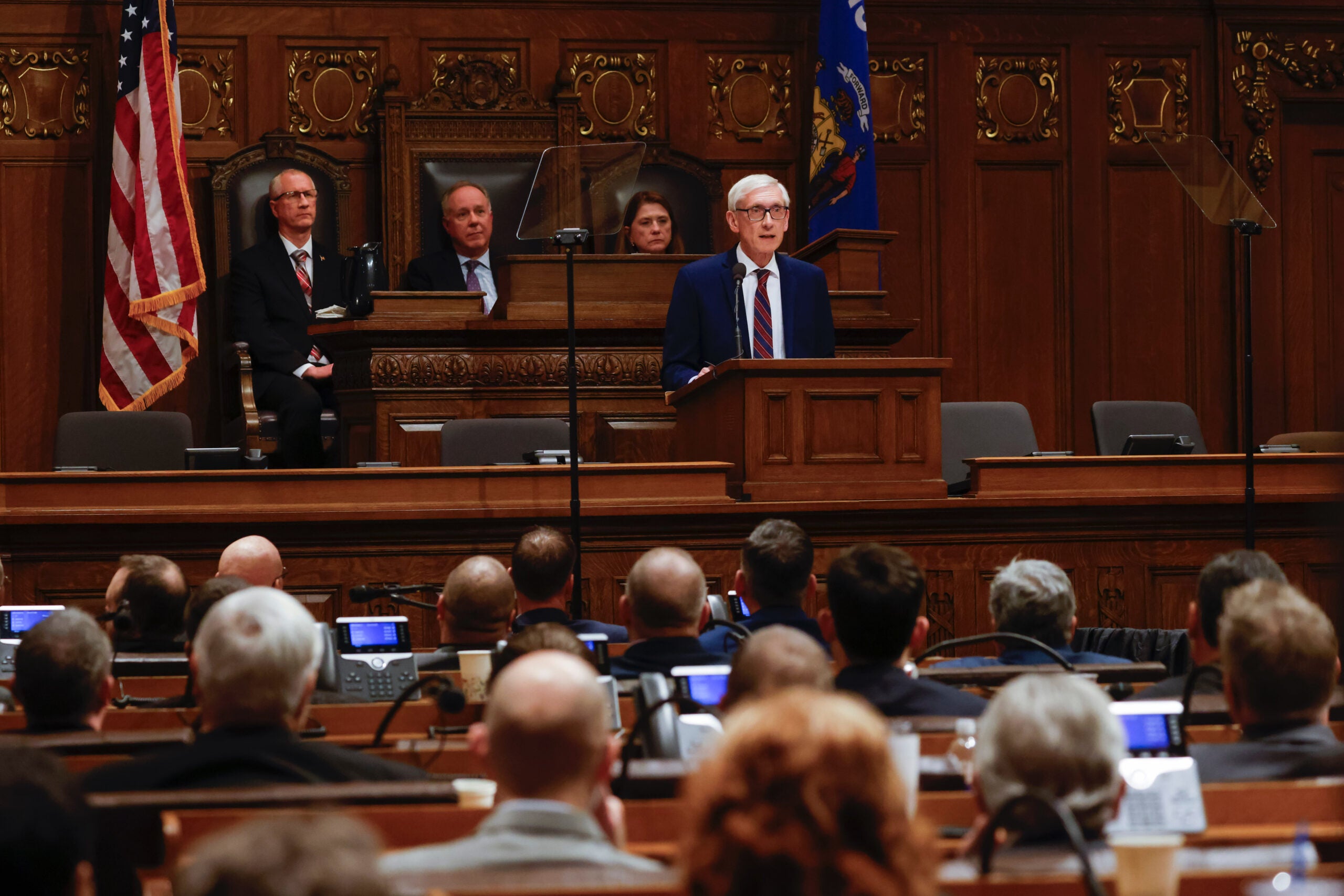Days after state revenue estimates came in billions of dollars higher than expected, Gov. Tony Evers called on GOP lawmakers to pass a new tax rebate that would pay every Wisconsin resident $150.
But just hours after Evers unveiled the plan, GOP leaders flatly rejected it, setting up a standoff ahead of Evers’ reelection campaign.
Evers’ proposed tax rebate would be the centerpiece of a budget surplus plan the governor’s office said would cost roughly $1.7 billion. The rebate itself would cost roughly $816 million according to Evers’ office.
Stay informed on the latest news
Sign up for WPR’s email newsletter.
The governor’s plan would also set aside about $103 million for an income tax credit for caregivers, $139 million for higher education and $610 million for K-12 education.
While the plan faces an uphill climb politically, it’s financially possible thanks to new revenue projections released this week that were $2.9 billion larger than predicted just last year. Should those estimates hold, it would leave Wisconsin’s general fund with a surplus of $3.8 billion by the end of the two-year state budget, on top of another $1.7 billion in Wisconsin’s rainy day fund.
Republicans said earlier this week that they wanted to wait to spend that surplus until the next budget is introduced in 2023. Evers said Wisconsin residents couldn’t wait that long for help given the strains many of them are feeling with inflation and the pandemic.
“That surplus won’t do us any good just sitting here in Madison until the summer of 2023,” Evers said at a state Capitol news conference Thursday. “We have the resources to make sure that every family and every community is doing just as well as our state’s economy.”
Just four years ago, GOP lawmakers passed and former Gov. Scott Walker signed a tax credit that paid parents $100 for every child. The same plan included a sales tax holiday for school supplies among other goods.
At the time, Democrats described the tax credit as an “election year bribe” for Walker. Asked about those criticisms, Evers said it was a different time.
“We weren’t in a pandemic back then,” Evers said. “And we didn’t have people that were struggling mightily at home, especially with some inflationary costs.”
The size of Wisconsin’s budget balance in 2018, and the size of its rainy day fund, were also smaller compared to the latest projections.
Evers also dismissed the idea that the Legislature wouldn’t pass his tax credit, calling the plan a Republican issue.
“I’ve heard Republicans talk about this in the past,” Evers said. “This is the people’s money, and sitting on the people’s money for another year-and-a-half makes no sense.”
But in multiple written statements following the release of the governor’s plan, top GOP lawmakers rejected it.
“Senate Republicans will not gamble with a projected state surplus to fund Tony Evers’ re-election gimmicks,” said Senate Majority Leader Devin LeMahieu, R-Oostburg.
“With a surplus this size, we are committed to permanent, generational tax reform, as also seen in every Republican budget over the last decade,” said Assembly Speaker Robin Vos, R-Rochester.
The GOP co-chairs of the Legislature’s budget committee, Sen. Howard Marklein, R-Spring Green, and Rep. Mark Born, R-Beaver Dam, also criticized the plan, with Marklein calling it “knee-jerk” and Born calling it “superficial.”
LeMahieu, Vos, Marklein and Born all voted for Walker’s child tax credit in 2018.
Evers faces Walker’s former lieutenant governor, Rebecca Kleefisch, and former U.S. Senate candidate Kevin Nicholson in the race for governor.
Kleefisch issued a statement on Twitter indicating she opposes Evers’ tax rebate.
“Any proposal that does not include substantial tax reform, putting more officers on the streets, and a real plan to fix our education system should be a non-starter for Republicans,” Kleefisch said. “No more band aids.”
The Democratic Party issued its own statement Thursday, accusing Republicans of trying to “hold taxpayers hostage” by opposing the governor.
Wisconsin Public Radio, © Copyright 2025, Board of Regents of the University of Wisconsin System and Wisconsin Educational Communications Board.





